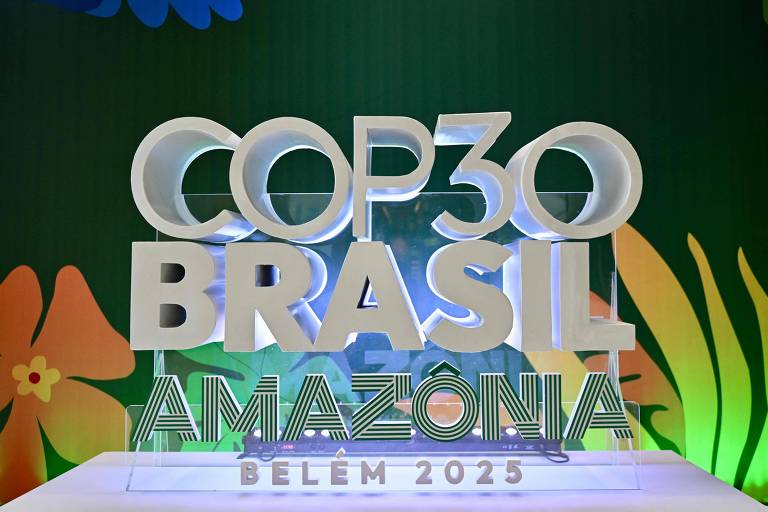A new era of climate cooperation is taking shape as the European Union and China officially join Brazil in forming a global carbon market coalition. This strategic move underscores a major power shift in the world’s approach to emissions reduction, climate finance, and sustainable industrial development. For the first time, three of the world's most influential economies are aligning their carbon-pricing ambitions under one framework, signaling an expanded global front in combating climate change through market-based mechanisms.
The entry of the EU and China into a Brazil-led initiative reflects an evolving geopolitical landscape where emerging markets play a stronger role in shaping climate policy. As global markets transition to low-carbon pathways, this coalition may become one of the most significant economic alliances of the decade.
Why the Carbon Market Coalition Matters
The EU has long been a pioneer in carbon pricing, operating one of the world’s most advanced emissions-trading systems. China, meanwhile, has rapidly expanded its national carbon market, now the largest in terms of emissions coverage. Brazil, with its strong environmental asset base and ambition to build an international carbon hub, is positioning itself as a bridge between developed and emerging economies.
Together, these three powers are accelerating the establishment of a carbon market coalition that supports shared standards, facilitates emissions trading, and unlocks cross-border investment in decarbonization. The coalition also strengthens global climate diplomacy by bringing major economies into alignment rather than operating in fragmented policy silos.
For emerging markets across Asia, Africa and Latin America, this coalition serves as both a strategic opportunity and a call to action. It represents access to investment, technology and credibility, but also signals rising expectations for carbon-pricing adoption and compliance.
Strategic Interests Driving EU–China–Brazil Alignment
Strengthening Carbon Market Scale and Influence
The EU aims to expand global adoption of carbon-pricing mechanisms to reduce carbon leakage and level the playing field for industries facing decarbonization costs. By joining the carbon market coalition, Europe increases global alignment with its green-industry rules, including border-carbon policies and climate reporting requirements.
China gains credibility and global leadership momentum in climate governance. Joining a coalition with the EU and Brazil improves cooperation on clean-technology development, emissions-measurement standards, and investment flows for green innovation.
Brazil sees this as a landmark shift empowering the Global South in climate decision-making. Through the coalition, Brazil positions itself as a climate convenor, leveraging its natural-resource strength and growing role in carbon-credit markets. This alliance also supports Brazil’s ambition to lead international climate platforms and shape new market mechanisms.
Economic and Trade Implications for Emerging Economies
The formation of a carbon market coalition is expected to reshape global trade systems. As more countries harmonize carbon-market rules, exporters must align with emissions-accounting standards to maintain market access. Carbon-intensive industries such as steel, cement, palm oil processing, fertilizer, and manufacturing will experience increased pressure to disclose and reduce emissions.
For emerging economies, aligning early with coalition standards may unlock access to global green-finance pipelines and international decarbonization technology. Nations that lag may face competitiveness risks, cost burdens, and compliance-related trade barriers. Investors and multinational companies will increasingly prioritize countries with credible carbon-pricing frameworks and transparent emissions-monitoring systems.
This trend also sets the stage for new cross-border carbon-credit markets. Countries with strong conservation sectors and renewable-energy potential, including Indonesia, Brazil, and Vietnam, stand to benefit significantly if they establish strong verification and regulatory systems to engage with the coalition.
Challenges Facing the Global Carbon Market Coalition
Although the coalition presents a transformative vision, its success is not guaranteed. The EU, China and Brazil operate with different political systems, industrial policies, and economic priorities. Aligning emissions-trading rules, monitoring systems and price frameworks will require diplomatic agility and technical harmonization.
Market readiness is another challenge. Some emerging economies lack sufficient technological infrastructure and regulatory capacity to implement robust carbon-pricing programs. Without adequate support, there is a risk of widening inequality between countries able to capitalize on green-economy shifts and those left behind.
Domestic industries may also resist adoption of tighter carbon rules due to cost concerns. Policymakers must carefully balance competitiveness and environmental goals while ensuring that carbon-pricing frameworks attract rather than deter investment.
What This Means for Indonesia
For Indonesia, the launch of this carbon market coalition arrives at a critical moment. Indonesia is building its own carbon-trading system and exploring mechanisms to price emissions while managing the economic impacts on industry. Participation or alignment with a global coalition could strengthen Indonesia’s credibility in climate finance and accelerate technology transfer in renewable energy, carbon-monitoring systems, and industrial decarbonization.
Indonesia is already recognized for its forestry-based carbon-credit potential, and stronger integration with international markets could help monetize conservation efforts. However, to benefit fully, Indonesia must strengthen emissions-data governance, support affected industries in transforming their operations, and ensure that its carbon market meets emerging global standards.
Companies and policymakers in Indonesia should track coalition developments closely. Aligning with standards early could boost export competitiveness, attract green investment, and protect Indonesia from carbon-related trade barriers. Conversely, slow adaptation may result in higher regulatory costs and missed investment opportunities.
The formation of a carbon market coalition uniting Europe, China and Brazil marks a defining moment in global climate-economy dynamics. It signals a maturing global framework where markets, rather than voluntary pledges alone, drive the transition toward cleaner industries. The coalition blends the regulatory leadership of the EU, the industrial scale of China, and the natural-capital strength of Brazil into a powerful climate alliance.
As carbon markets increasingly shape global trade and finance, emerging economies like Indonesia face a strategic choice: align early and benefit, or lag behind and face heightened risks. The world is clearly moving toward coordinated carbon-pricing regimes, and this coalition may become the foundation for the next phase of global climate cooperation.
Read More






 Sunday, 08-02-26
Sunday, 08-02-26







